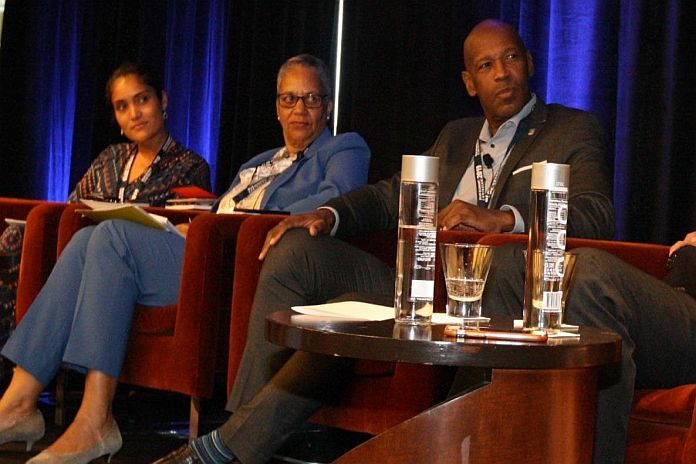MIAMI, Florida – Leaders and experts are calling for more collaboration across the Caribbean to unlock the potential of the blue economy, noting that a regional approach can help overcome the inherent challenges of size and scale.
The calls came at Blue Economy Caribbean 2019, held in Miami, Florida on October 15, where speakers highlighted collaboration as a way to enhance investment, development, research, and governance of the blue economy. The event was sponsored by the Caribbean Development Bank (CDB), in partnership with the government of Canada.
Vice-President, operations of the Caribbean Development Bank, Monica La Bennett led the call in the opening reflections session of the event.
“The benefits of a One-Caribbean approach to the Blue Economy are twofold. By reducing intra-regional competition, countries can engage multinationals on stronger footing, thereby decreasing the discounts offered to attract these companies into one country versus the other; and by unifying the region and improving our economies of scale, financing and equity investment projects are made more accessible because of the combined size of regional/multi-country interventions, as opposed to single small-scale ones,” La Bennett said.
This point came into focus during the session on financing the blue economy, where a mix of commercial and development bankers from CDB, the Inter-American Development Bank, Royal Bank of Canada and JPMorgan Chase Corporate and Investment Bank shared recommendations for creating the right ecosystem for financing the sector.
Speaking on the short to medium-term prospects for the sector, vice president at JPMorgan Chase, Corporate and Investment Bank, Public Sector Group, Poorvi Kunzru, urged Caribbean industry leaders to “really put the size-scale proposal to work” by coming together to bring bankable blue economy projects “of size that the private sector can get excited about.”
The Caribbean was also repeatedly encouraged to work as one to protect its interests in the blue economy.
William Crosbie, a special consultant on the blue economy for Global Affairs Canada, stressed that it was important to “break down political barriers so that the region thinks more as one”; establish common priorities, and coordinate messaging to the international community on issues such as disaster risk reduction which impact blue industries.
Director-General of the Organisation of Eastern Caribbean States (OECS) Dr Didacus Jules called for a common approach on policymaking, noting that the OECS was willing to review a proposal for the feasibility of a communal fee for cruise ships which could be shared.
A regional solution also came to the fore during the recurring discussions on data. Several panelists and discussants addressed the importance of more and better data to guide policy decisions on blue economy investments. During one such discussion, CDB’s director of economics, Dr Justin Ram proposed that “… a single regional statistical agency makes sense”, allowing the region to “pool resources and achieve efficiencies.”
During the event, CDB also presented the results of a recent working paper that places a value on the blue economy by developing a blue economy satellite account methodology for the Caribbean.
Blue Economy Caribbean 2019 brought together more than 100 industry stakeholders and leaders to discuss investment and development opportunities for the sector. It preceded the Caribbean renewable energy forum, October 16 to 18 in Miami.





